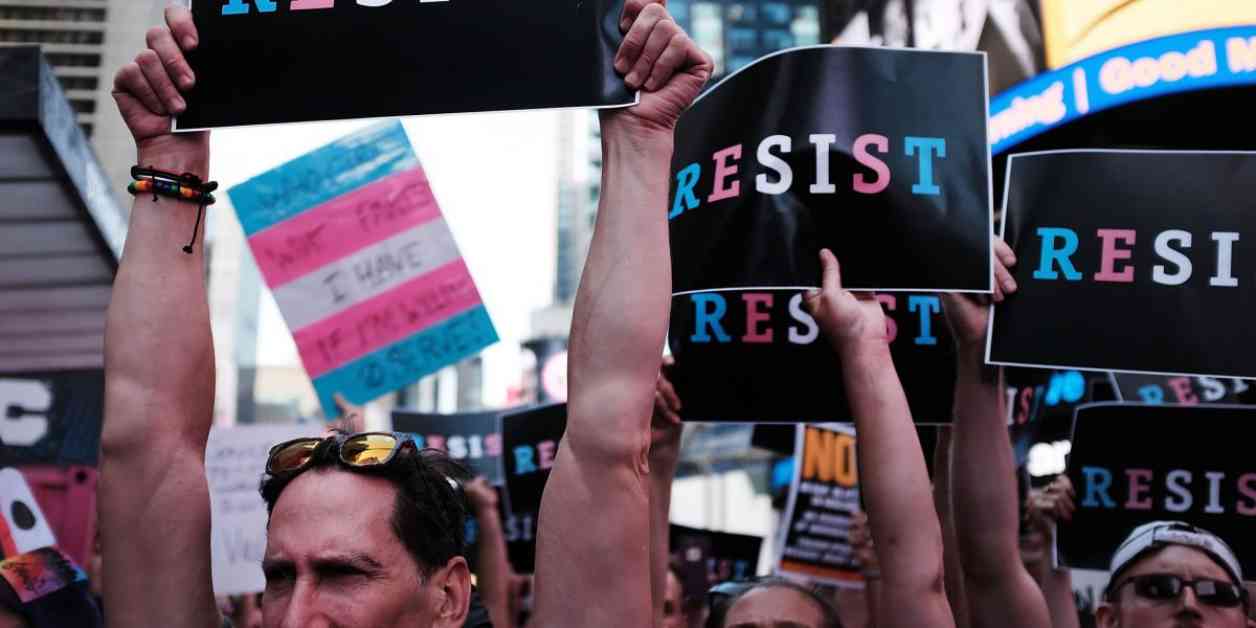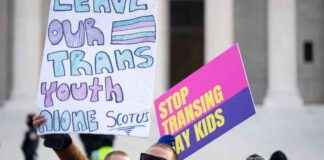In 2017, amidst a storm of controversy and protests, President Trump announced a ban on transgender individuals serving in the military. The move was met with widespread criticism and sparked a wave of demonstrations, including a notable gathering in Times Square. However, President Joe Biden later reversed the ban, allowing transgender individuals to serve openly in the armed forces. Now, in a surprising turn of events, Trump has reinstated the ban through an executive order, reigniting the debate and raising concerns among American troops.
The Impact on Transgender Service Members
For transgender individuals currently serving in the military, the reinstatement of the ban brings a renewed sense of uncertainty and fear. Many have already faced discrimination and challenges within the ranks, and the latest decision only adds to their burdens. The abrupt policy change leaves them questioning their future in the military and the stability of their careers.
One such service member, who we’ll call Alex to protect their identity, shared their experience with us. Alex joined the military with dreams of serving their country and making a difference. However, the ban has cast a shadow over their aspirations, leaving them feeling isolated and marginalized. “I’ve dedicated my life to this country, and now I’m being told that I’m not welcome because of who I am. It’s disheartening and demoralizing,” Alex expressed.
Expert Insights on the Policy Reversal
To gain a deeper understanding of the implications of Trump’s transgender military ban, we spoke with Dr. Rachel Collins, a military policy analyst. Dr. Collins emphasized the detrimental effects of such a policy on both individual service members and the military as a whole. “Banning transgender individuals from serving not only goes against the principles of equality and inclusivity but also undermines the readiness and effectiveness of our armed forces,” Dr. Collins explained.
Moreover, Dr. Collins highlighted the psychological toll that discriminatory policies can have on service members. “For transgender individuals who have bravely chosen to serve their country, being targeted in this way can have severe consequences on their mental health and well-being,” Dr. Collins stated. It is essential to consider the human cost of such decisions and the impact they have on those who are willing to sacrifice everything for their country.
Moving Forward: Advocacy and Support
In the face of adversity, advocacy groups and allies of the transgender community are rallying to support those affected by the ban. Organizations such as the Transgender American Veterans Association are working tirelessly to provide resources, legal assistance, and emotional support to transgender service members. Their efforts are crucial in ensuring that those impacted by the ban have the necessary tools to navigate this challenging time.
As a society, it is imperative that we stand in solidarity with our transgender service members and advocate for policies that promote equality and inclusivity within the military. By amplifying their voices and sharing their stories, we can shed light on the human impact of discriminatory measures and work towards a more equitable future for all who serve our country.
In conclusion, the reinstatement of Trump’s transgender military ban has reignited a contentious debate and sparked concerns among American troops. As we navigate this complex issue, it is essential to prioritize empathy, understanding, and support for those affected by these discriminatory policies. Let us stand together in solidarity with our transgender service members and strive for a more inclusive and equitable military for all.



















